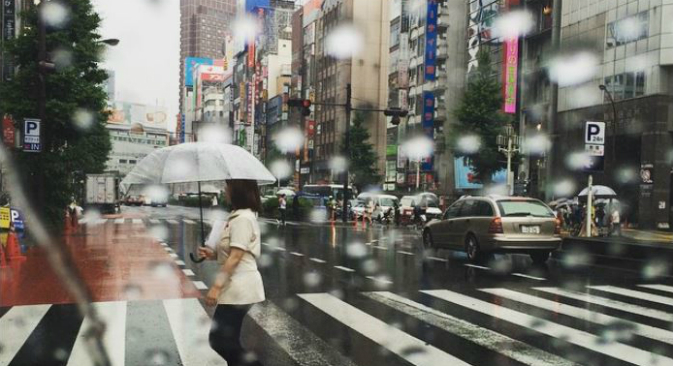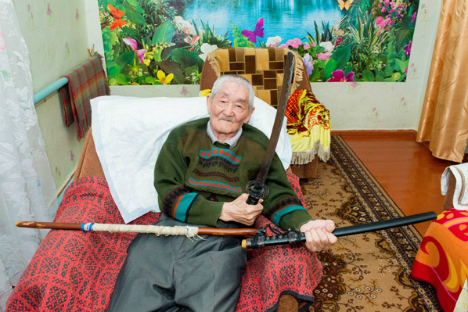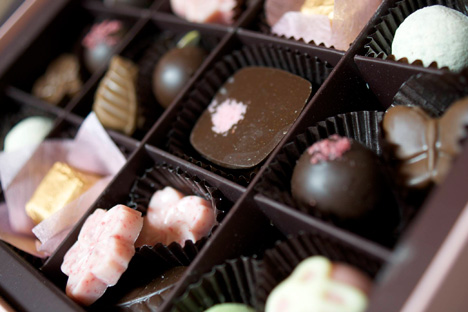Japan: A whole new world

Three years ago, I moved to Japan and immediately found myself in a totally different world.
While chatting with my friends, I often call it “a country that’s upside down.” Unlike Russians, Japanese eat fish in the morning, read magazines from the back and wear slippers when visiting the toilet. It’s considered impolite to be loud or quarrel in public places. Even a tiny hint of sexuality is totally taboo in Japan.
There were some things that needed getting used to, while I had to learn a lot about Japanese etiquette from scratch. For instance, unlike Russians who tend to be very individualistic, Japanese people enjoy group activities, such as student study groups and tourist cubs for the elderly. It took me a considerable amount of time to get involved in groups.
When I first moved to the country, I was puzzled, about the fact that my Japanese husband’s friends would not greet me, after having learnt that I worked at home and did not belong to any social group. Everything changed when I entered a language school and became part of a particular group. I can now freely say that I can talk on any subject in the language. And in response, I always get an encouraging nod of the head.
Nods and bows are also something special here. When greeting each other, Russian men shake hands, women smile and friends can even warmly embrace. In Japan, regardless of age and sex, everybody bows both when greeting and saying goodbye. The lower a Japanese person bows the more respect he or she shows. So a subordinate bows lower, than his boss does, a junior business partner bows lower than his senior partner, while a mother-in-law can skip bowing when greeting her daughter-in-law and give her just a nod of the head. Now I also bow when I meet my friends at an airport. I’m used to it.
When they land in Japan, my friends (as I used to in the past) expect to see a furious stream of cars, lots of people and dust. What they see instead always surprises them. The cities are clean and the structure is well planned and offers the visitor a sense of peace. No rush on the underground, no traffic jams that last for hours and no hooligans around the corner. The citizens follow the same routine everyday and synchronize watches according to the metro trains. Even foreign tourists fall under the influence of this rhythm and become much more disciplined. Pure air, blue skies and buildings rising up to the sky! This would be an accurate description of a Japanese city.
Japanese Politness
Japanese politeness is legendary. They are not just polite; they beg pardon for just about everything from entering and leaving a room to losing their temper. They will always thank you for the time spent with you, for your work, for a delicious dinner. They’re never embarrassed to express gratitude. Every Japanese person wants to create a favorable impression. This is even the case with bus drivers, making the Japanese public transport the best in the world. After a week in Japan, the rest of the world appears a bit rude.
But regardless of how well I understand Japanese morals and values, I will never be considered Japanese here. Japanese gently smile at foreigners, but protect their ancient culture from waves of immigration. That’s why it’s hard to get a residence permit here and even a tourist has to submit a dossier of documents to get a visa.
Japan was closed from the rest of the world for a very long time and I should say, that not much has changed in the last few decades. In the place where I live, there are very few White foreigners, which makes me feel a white crow. To deal with my green eyes and light skin, which make me stand out, I started using some camouflage. I wear big sunglasses and various types of headgear. Respecting the local culture, I dress modestly.
I also picked up a lot of new habits and have leant the Japanese way of cleanliness. Back in Russia, I did take a shower every morning, but it’s not this kind of cleanliness I’m talking about. There is a cult of cleanliness here in Japan. You’ll lift a tiny paper from the ground and clean the toilet seat after using it. These habits have historical roots. After WWII, conditions were so unhygienic in Japan that people could die from drinking tap water. The country started to implement harsh hygiene rules and a system of penalties (even jail sentences) for breach of these rules. So, cleanliness became a cult and later a habit of every Japanese person, who can’t live without toilet slippers, pocket garbage bags and other attributes of cleanliness.
Despite some clear difficulties, I like this “upside down” country and learn a lot from the local people. This culture changed me forever, proving to me how important it is to serve people. And I understood, that it’s more comfortable to read magazines from the back. I also learnt that fish and rice in the morning gives you energy for the whole day, and that patience is a key to success.
All rights reserved by Rossiyskaya Gazeta.
Subscribe
to our newsletter!
Get the week's best stories straight to your inbox


